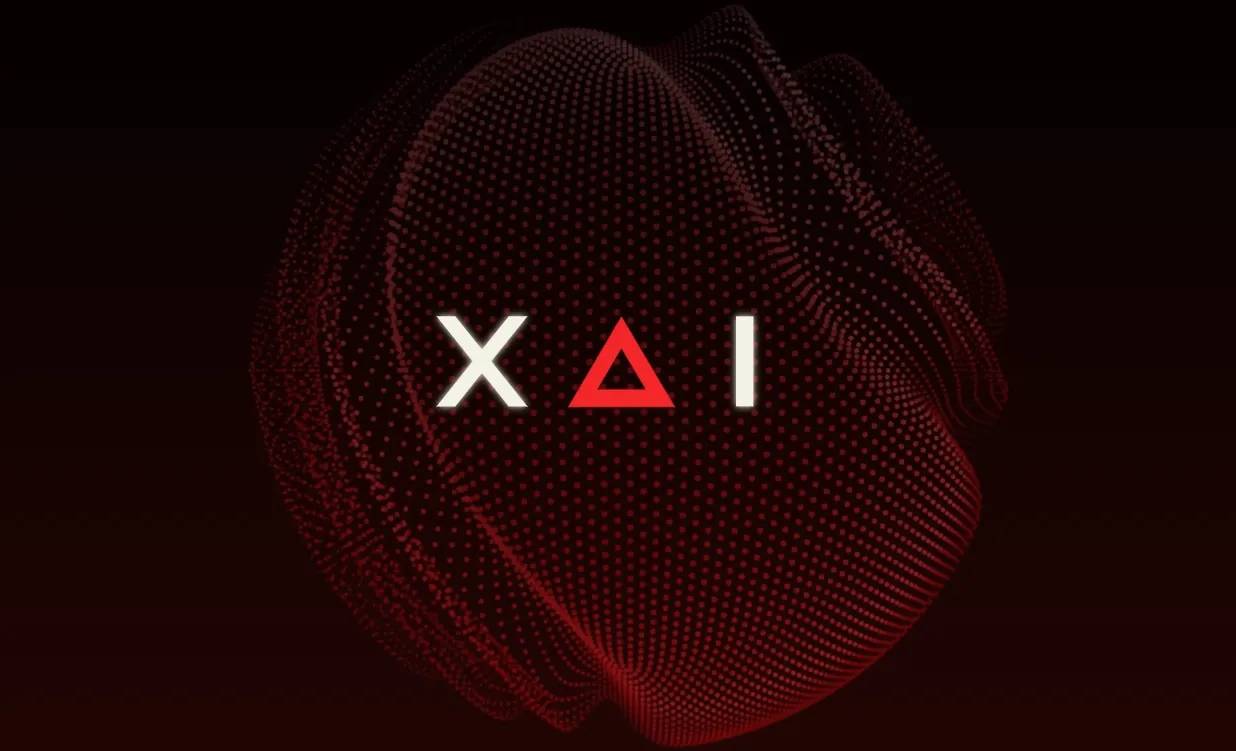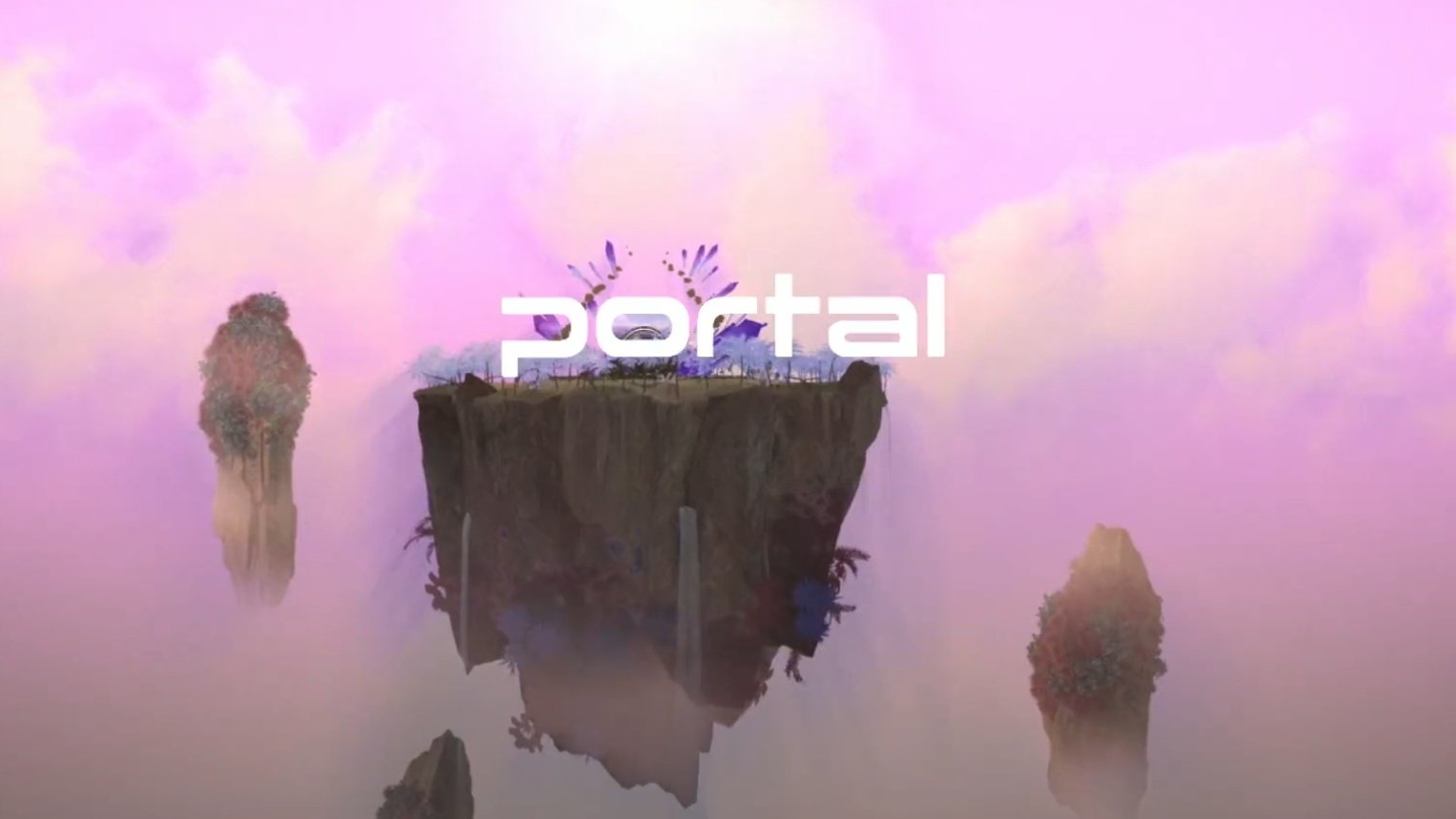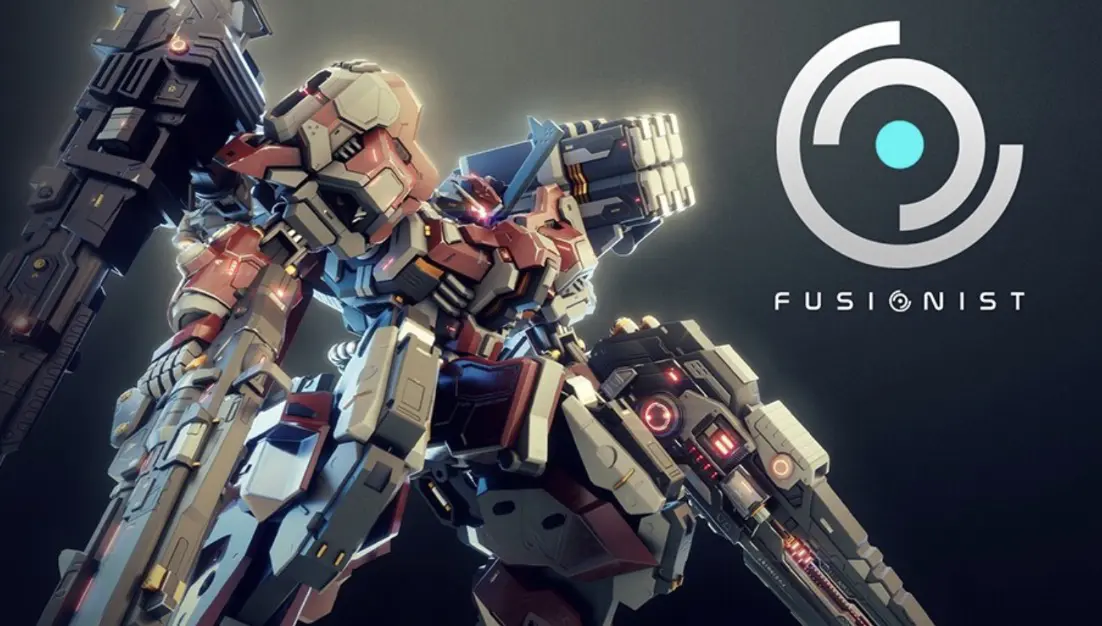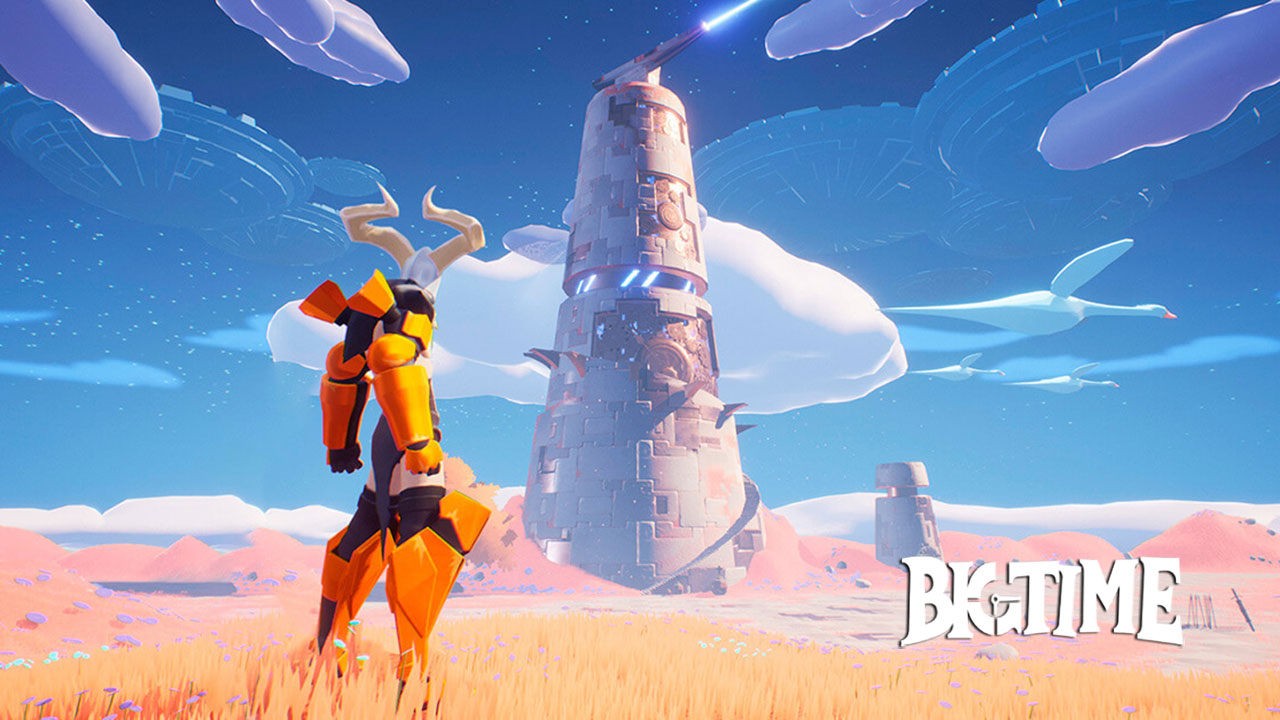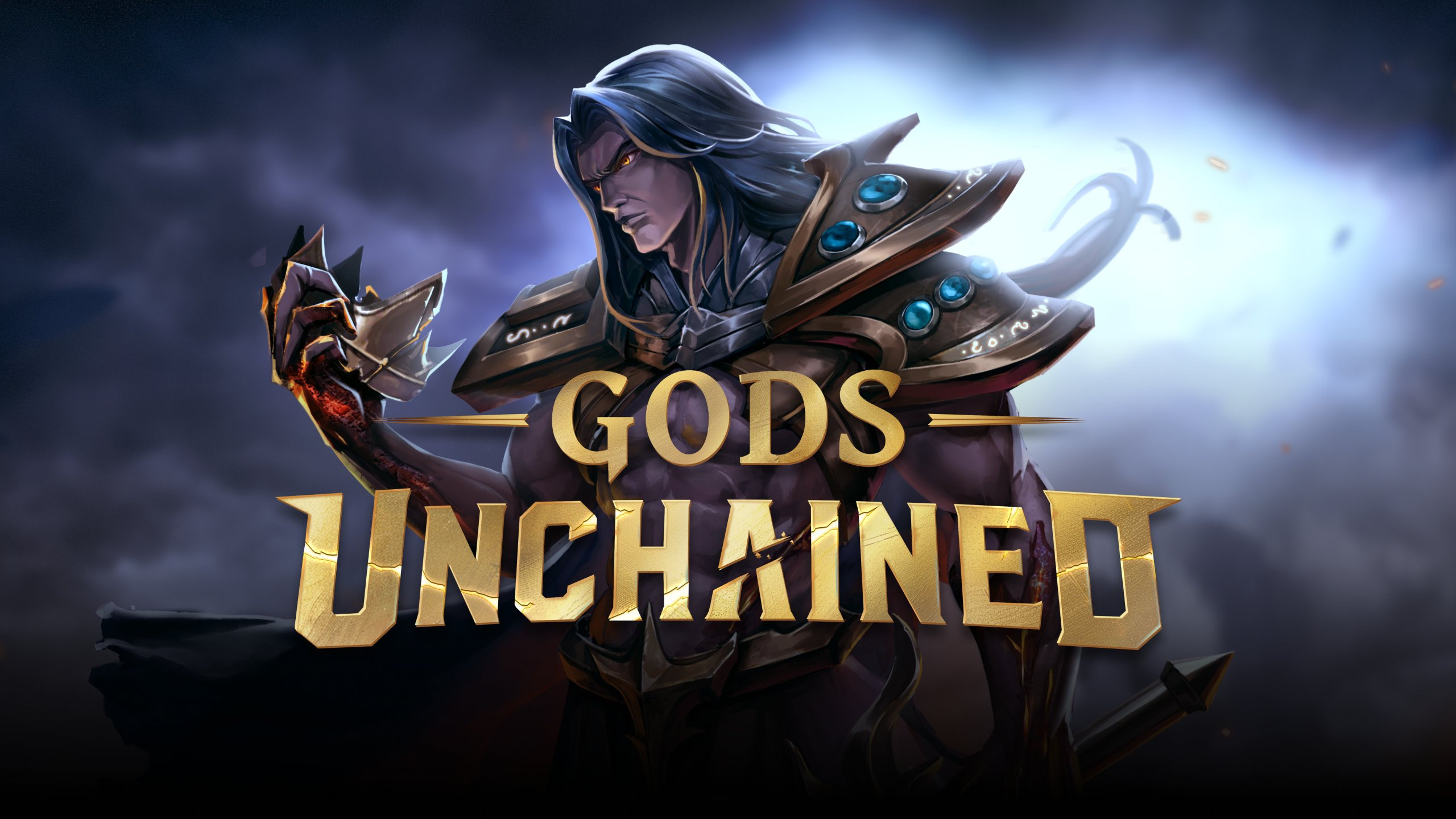Blockchain games with a financial incentive for participants are referred to as GameFi. Generally, users may get crypto and NFT incentives by doing missions, competing against other players, and progressing through the game’s stages. Today, let’s dig deeper with Coincu to find out the top 5 best GameFi projects in 2023.
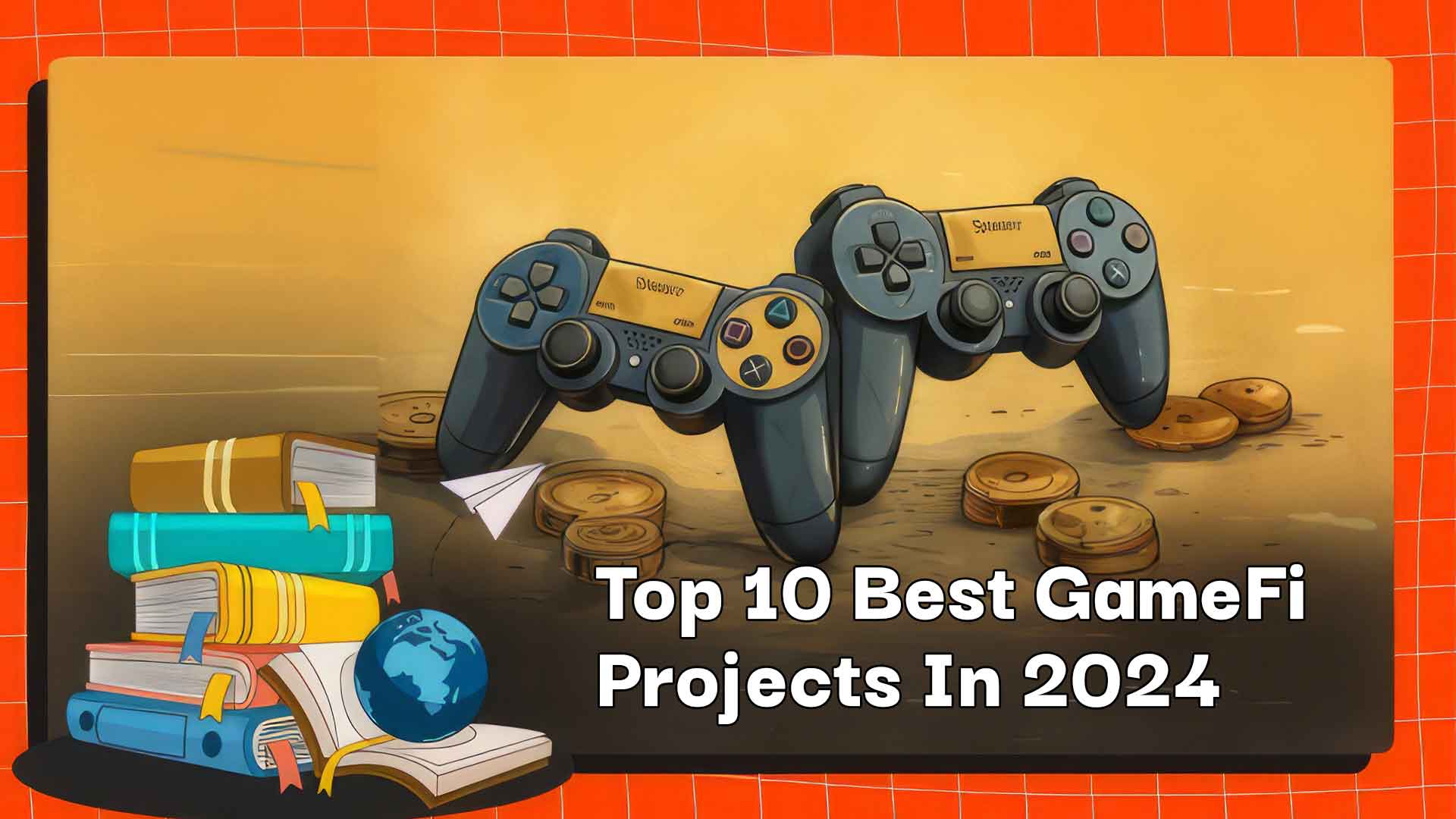
What is GameFi?
In recent years, a new and exciting market segment has emerged within the world of blockchain and decentralized finance (DeFi). GameFi, short for gaming finance, is revolutionizing the way gamers interact with blockchain technology.
This innovative approach combines elements of game theory, online gaming, and DeFi to provide gamers with tangible rewards while fostering a stronger connection to cryptocurrencies.
GameFi introduces the concept of “play-to-earn” (P2E), offering players the opportunity to earn digital assets, rare in-game items, and more while having full control over their in-game possessions. This pioneering idea has quickly gained momentum in the gaming community, aiming to merge the virtual world of gaming with the tangible benefits of blockchain technology.
Popular incentives include in-game cryptocurrencies and non-fungible tokens (NFTs), which can be traded, sold, or even used as collateral in various financial applications. These incentives empower gamers to not only enjoy their favorite titles but also earn from their passion.
By combining online gaming with DeFi mechanisms, GameFi has paved the way for the creation of in-game economies and convenience. Players can participate in staking, liquidity mining, and more, making their gaming experience both enjoyable and financially rewarding. This new movement has effectively broken down the barriers between virtual and real-world value.
As GameFi continues to gain traction, market forecasts predict substantial growth, with expectations that it could rise to over $38 billion by 2028. The potential of this exciting market segment has attracted both gamers and investors alike, further fueling its expansion.
Top 10 Best GameFi Projects
1 | Pixels | Pixels is a captivating open-world NFT farm game. It boasts a nostalgic, pixelated graphic style designed to appeal to gamers of all skill levels. | |||
2 | StepN | StepN, the Move-to-Earn game, is set to redefine the way we engage with our health and leisure activities. | |||
3 | Xai | The Xai team unveiled plans for a Layer 3 blockchain, leveraging the robust Arbitrum network infrastructure. | |||
4 | Portal | Portal is a pioneering cross-chain Web3 gaming platform. It aims to bridge the gap between gaming ecosystems by connecting titles from popular blockchains. | |||
5 | Fusionist | Fusionist is a beacon of innovation, spearheaded by a seasoned team of veteran game developers. This AAA title integrates cutting-edge technologies. | |||
6 | Big Time | Big Time is a dynamic and fast-paced RPG that stands out in online gaming, offering players an exhilarating adventure filled with multiplayer excitement. | |||
7 | Gods Unchained | Gods Unchained is a Play to Earn gaming platform that leverages Ethereum technology to allow players to engage in gameplay without investment. | |||
8 | Sipher | Sipher is the last name in the list of best GameFi projects that we want to mention. Sipher is a role-playing Ethereum blockchain game project in the MOBA genre. | |||
9 | Cryowar | CryoWar is an innovative gaming venture that pioneers a limitless sci-fi medieval metaverse, seamlessly uniting developers and investors. | |||
10 | Nyan Heroes | Nyan Heroes is a cutting-edge GameFi phenomenon that immerses players in an exhilarating shooter-style battle royale, featuring adorable Nyan heroes |
1. Pixels
Overview
Pixels (PIXEL) is a captivating open-world NFT farm game. It boasts a nostalgic, pixelated graphic style designed to appeal to gamers of all skill levels. Offering accessibility and simplicity, the game invites users into a virtual universe where they can engage in a myriad of activities, ranging from collecting resources and building structures to honing skills, forging alliances, and embarking on exploratory quests.
Initially established and nurtured within the confines of the Polygon network, Pixels underwent a significant transition by October 2023. The project seamlessly migrated to the Ronin network, a strategic move that positioned it within the realm of a sidechain crafted by Sky Mavis, the renowned force behind the immensely popular Axies Infinity game.
Highlights
Pixels offers adventurers an open-ended journey through agricultural exploration. In this expansive universe, players delve into collecting resources, honing skills, and fostering relationships while unraveling the rich tapestry of stories and missions scattered throughout.
One of the distinctive features of Pixels lies in its innovative in-game NFT system, which adds a layer of uniqueness and novelty to the gaming experience. Within this system, players can acquire various assets such as agricultural land, resources, and pets, each imbued with distinct features, functions, and values, enhancing the depth of gameplay.
Since transitioning to the Ronin blockchain in October 2023, Pixels has witnessed a meteoric rise in its player base, surpassing the milestone of 1 million active participants.
Moreover, the fervor surrounding Pixels extends to platforms like Opensea, where the value of NFT Land has experienced a remarkable surge. Lands that were once traded for a mere 0.65 ETH have now skyrocketed in worth, commanding prices nearing 2 ETH, reflecting the burgeoning market demand for Pixels’ virtual assets.
2. StepN
Overview
StepN, the Move-to-Earn game, is set to redefine the way we engage with our health and leisure activities. Participants can now step out into the real world, whether for a leisurely stroll or a vigorous jog, and in the process, earn valuable game tokens that hold real-world value. The list of best GameFi projects of course cannot lack this name.
One of the fundamental principles behind StepN is the power of combining physical activity with the excitement of gaming, offering a novel approach to fitness and entertainment. Gamifying exercise routines has proven to be a game-changer, tapping into a burgeoning trend of health-conscious individuals who are seeking innovative ways to make exercise more engaging and rewarding.
Highlights
Mining Tokens through Physical Activity
StepN functions on a principle akin to Bitcoin mining, but instead of solving complex algorithms, users must demonstrate their physical activity. By downloading the app, users embark on a journey where they can earn tokens and NFTs by engaging in various forms of exercise. This unique approach combines the benefits of staying active with the allure of cryptocurrency and NFTs.
To ensure authenticity and prevent cheating, the app leverages GPS and machine learning. It verifies that users are genuinely exercising before they are eligible to mine tokens and NFTs. Remarkably, it’s not the game developer, FindSatoshi Lab, famous for their work on the cryptocurrency wallet Solwallet, that mints the tokens and NFTs. Instead, it’s the users themselves who mint and send them to their wallets. This decentralized approach ensures transparency and user control.
The Economy of StepN: GMT and GST Tokens
StepN features two types of tokens: GMT and GST. GMT, with a total supply of 6 billion, serves as a governance token that empowers users to increase their income. In contrast, GST, an in-game token, is earned by users for participating in various in-game activities. The creators have deliberately chosen to maintain an inclusive approach, ensuring that the governance token revenue isn’t restricted to a select few. Instead, they’ve made both GMT and GST widely accessible to maintain a balanced token ecosystem.
Playing and Earning
Currently, StepN offers a solo mode that rewards users with GST tokens for real-world travel. Users must move for at least 5 minutes, consuming one unit of virtual energy, to start earning. It’s important to note that the acquisition of NFT trainers is a prerequisite for initiating these processes. No tokens are awarded if the energy level reaches zero.
The game also introduces a feature upgrade system, where players can use game tokens earned from running to enhance their sneakers, create new sneaker types, and upgrade gems to improve attributes. Gems, randomly received from the Mystery Box, can be inserted into NFT Sneakers to enhance their properties.
Achievements and Marketplace
Dedicated players in StepN can earn achievement badges with unique perks, which can be traded on the marketplace. This marketplace is a central hub where players can exchange NFT Sneakers, SSS, badges, and Mystery Boxes. It offers user-friendly features like filters and sorting, making trading convenient and efficient.
Play to Earn: Passive and Active Earning
Players have the opportunity to earn GST tokens both passively and actively. Passive earnings come from simply keeping the game running in the background and carrying your phone while walking or jogging. The app automatically tracks your journey and step count to calculate bonus points.
For those seeking a more active approach, StepN offers various activities, including PVE, PVP features, and daily missions, to earn tokens actively. This unique blend of physical activity and digital rewards sets StepN apart in the ever-evolving world of fitness and blockchain technology.
3. Xai
Overview
The Xai team unveiled plans for a Layer 3 blockchain, leveraging the robust Arbitrum network infrastructure. Their mission? To revolutionize the gaming industry by introducing a bespoke blockchain solution tailored specifically for gamers, with a focus on delivering seamless and user-friendly experiences.
Xai aims to entice gamers into the decentralized realm. By offering a platform that promises enhanced gameplay and interaction through blockchain integration, Xai seeks to tap into a vast market of gamers who have yet to explore the potential of blockchain-based gaming.
Central to their strategy is the development of four flagship games slated for release on the Xai network. These titles, meticulously crafted by the Xai team, encompass a diverse range of gaming experiences:
- Final Form: A captivating card game designed to intrigue players with its strategic depth and immersive gameplay mechanics.
- LAMOverse: An adrenaline-pumping action game set to deliver thrills and excitement as players navigate through dynamic virtual worlds.
- Tarochi Game: Embark on an epic journey with this RPG title, where players can immerse themselves in rich narratives and expansive realms.
- Web3 Warriors: Survival instincts are put to the test in this gripping survival game, where players must navigate challenges and overcome obstacles in a blockchain-powered environment.
Highlights
Here are the key highlights that set Xai apart:
- Flexible Architecture: Xai leverages Orbit Chain technology, enabling developers to tailor the structure of the blockchain to their specific needs. By integrating Arbitrum Rollup and Arbitrum AnyTrust, Xai inherits robust security measures while facilitating transactions with minimal gas fees.
- Seamless User Experience: Xai prioritizes user convenience by integrating the Web3 wallet directly into the network. This integration streamlines user interactions within the ecosystem. Moreover, Xai’s blockchain architecture is purpose-built for gaming, ensuring developers can focus on crafting immersive gaming experiences without concerns about performance issues.
- Successful Funding: Xai has demonstrated its appeal to investors by raising an impressive $10 million through three private sale rounds. While specific details regarding the timeline and investors remain undisclosed, this substantial funding underscores confidence in Xai’s vision and potential within the blockchain gaming sector.
- Binance Listing: A significant milestone for Xai occurred when it became the first GameFi project to be listed on Binance’s Launchpool in 2024, with the introduction of the XAI token.
4. Portal
Overview
Portal, a pioneering cross-chain Web3 gaming platform, has emerged as a game-changer in the realm of decentralized gaming. Leveraging LayerZero technology, Portal aims to bridge the gap between various gaming ecosystems by connecting titles from popular blockchains like Ethereum, Solana, and Polygon.
The platform’s overarching objective is to deliver a seamless gaming experience that transcends the boundaries of Web3 while also appealing to newcomers in the Web2 domain.
At the core of Portal’s mission lies its commitment to offering users unparalleled convenience and accessibility. With a vast array of over 200 game titles spanning diverse genres, Portal stands out by providing tailored solutions such as Portal Passport, Portal Wallet, and Portal Launchpad. These innovative features streamline the user experience, eliminating the need for cumbersome tasks like bridging and swapping tokens.
Highlights
Boasting an array of innovative features, Portal has cemented its position as a trailblazer in the realm of decentralized gaming.
- Portal Passport: One of Portal’s flagship offerings, Portal Passport revolutionizes the way players interact with Web3 games. Developed as a unified identity solution, Portal Passport enables players to seamlessly access over 200 titles without the hassle of creating multiple accounts.
- Portal Wallet: Catering to the needs of both seasoned veterans and newcomers alike, Portal Wallet serves as a non-custodial wallet solution seamlessly integrated into the platform. Designed to simplify access to Web3 games, Portal Wallet enables users to seamlessly transition from Web2 social networking platforms such as X (Old Twitter) and Discord.
- Portal Launchpad: By allowing players to stake PORTAL tokens in exchange for participation in token or NFT issuances, Portal Launchpad not only facilitates fundraising but also promotes community engagement, driving the success of emerging game projects.
- Multi-chain Gaming Experience: With support for leading blockchains such as Solana, Ethereum, and Polygon, Portal enables players to access a vast array of game titles seamlessly.
5. Fusionist
Overview
Fusionist is a beacon of innovation, spearheaded by a seasoned team of veteran game developers. This AAA title integrates cutting-edge technologies like Unity and HDRP to deliver a premium gaming experience, captivating users with its immersive gameplay.
At its core, Fusionist represents the fusion of two distinct elements: a blockchain game bearing its namesake and a robust game/social infrastructure layer known as Endurance. The brainchild of Fusionist, Endurance operates as a Layer 1 blockchain solution specifically tailored to accommodate the demands of web3 gaming.
Highlights
Endurance
Serving as an upgrade to Alpha Prestige, Endurance stands as a testament to Fusionist’s commitment to enhancing the gaming experience. This user engagement reward system operates on the Fusionist sidechain, offering a comprehensive solution to incentivize and reward player participation.
BOAT
Central to the Endurance ecosystem is BOAT, the Bound On-Chain Achievement Token. BOAT serves as tangible proof of a player’s contributions to Fusionist, encapsulating their achievements and activities within the game. Beyond mere recognition, BOAT holds significant value within the Fusionist community, serving as a crucial criterion for eligibility in airdrop events orchestrated by the platform.
Moreover, BOAT unlocks a plethora of benefits for its holders. From bolstering the ability to earn daily ACEs (Achievement Contribution Equivalents) to unlocking exclusive in-game perks and advantages, BOAT empowers players to elevate their gaming experience to new heights.
6. Big Time
Overview
In the dynamic world of online gaming, Big Time has emerged as a thrilling and fast-paced RPG (Role-Playing Game) that invites players to embark on an action-packed adventure alongside their friends. What sets Big Time apart is its unique blend of multiplayer gameplay and the exciting opportunity to explore diverse universes while uncovering valuable NFTs and other coveted loot.
Big Time is more than just a game; it’s a collaborative gaming experience that encourages players to band together and tackle challenges as a team. As you journey through the game’s multifaceted universes, you and your friends will face adrenaline-pumping action and strategy, making every moment an opportunity for excitement and camaraderie. It deserves to be one of the best GameFi projects from which you can choose.
Highlights
Game Experiences and Varied Objectives
Big Time enables players to team up with up to six others to conquer dungeons. Each dungeon is teeming with monsters, and players must complete a variety of objectives before facing the final boss. These objectives range from disarming bombs to collecting flowers and slaying specific enemy types.
The monsters in Big Time drop clothing and armor items inspired by different time periods, allowing players to express themselves uniquely and show off their fancy gear to others online.
Exploring a Multiverse with Valuable NFTs
Big Time is a game that takes you on a journey through five distinct areas, each with its own theme and level of difficulty. Beginners can find their footing in Rustling Forest and No Man’s Land, while those seeking a bit more challenge can venture into the Wasteland. For the most adventurous players, the Icy Waste and Icy Castle present a formidable challenge, with powerful monsters that will test even the most skilled gamers.
But what truly sets Big Time apart is its integration of Non-Fungible Tokens (NFTs) into the gaming experience. These digital assets are divided into two categories: Cosmetic NFTs and SPACE NFTs. Cosmetic NFTs allow players to customize the appearance of their weapons and characters, adding a unique visual element to the game.
BIGTIME Token: The Cryptocurrency Behind the Game
The BIGTIME token serves as the backbone of the Big Time ecosystem. It’s a fair launch token earned through in-game drops, with no allocation to the team or investors. Players can generate BIGTIME by playing the game while equipped with an Hourglass. The rarity tier and difficulty of the content played determine the amount of BIGTIME earned. Players can equip up to five Hourglasses by spending Time Crystals.
It’s important to note that BIGTIME tokens are not tradable within the game or on in-game marketplaces. However, they can be exported to personal wallets, where they can be traded on external exchanges.
Procedurally Generated Dungeons and Unending Content
Big Time sets itself apart with procedurally generated dungeons, ensuring a fresh and unique experience every time players log in. These dungeons offer a wide array of precious NFT and non-NFT loot, providing countless hours of gameplay.
However, this seemingly unending grind for better loot has been a double-edged sword for Big Time. Players find themselves investing countless hours in the game, all while facing similar challenges repeatedly. This aspect of the game has proven to be both a blessing and a curse for avid gamers.
7. Gods Unchained
Overview
Gods Unchained is a Play to Earn gaming platform that leverages Ethereum blockchain technology to offer players the opportunity to engage in gameplay without initial investment, ensuring full ownership of in-game assets. Players can collect cards imbued with various powers, and participate in buying and selling virtual items within the game environment.
Highlights
Investment in Quality
One of the hallmarks of Gods Unchained is its substantial investment in quality. The team behind the game is committed to constant improvement, aiming to cultivate a highly tactical and competitive environment that entices players.
Player Ownership and Profitability
Gods Unchained pioneers the concept of player ownership through the integration of Non-Fungible Tokens (NFTs) in the form of ERC-721 tokens. These tokens represent in-game items, particularly cards, allowing players to buy, sell, and trade them using the ecosystem’s primary currency, the GODS token.
The introduction of NFTs not only grants players unprecedented ownership of their in-game assets but also opens up avenues for profit. By leveraging the GODS token, players can engage in trading activities within the game, potentially converting their virtual assets into real-world currency.
Scalability on Ethereum
Gods Unchained demonstrates commendable scalability on the Ethereum blockchain, with its digital assets and items swiftly launching on Immutable, a testament to the game’s adaptability and robust infrastructure.
8. Sipher
Overview
Sipher is the last name in the list of the best GameFi projects that we want to mention. Sipher is a role-playing Ethereum blockchain game project in the MOBA genre. The characters will explore the land together in Sipheria – World of Blocks to receive valuable prizes.
Highlights
The World of Sipheria
Sipheria is a virtual world comprised of interconnected regions known as Blocks. Each Block boasts a variety of cities filled with activities and opportunities for players to explore. Some of the notable locations include:
- Medical Bay: A place where players’ avatars, known as Siphers, can heal after intense battles.
- Distillery: This facility transforms organic materials found on the map into consumable items for use in combat.
- Workbench: Here, metal materials discovered during gameplay can be converted into consumable items.
- Droid Station: A hub for healing and upgrading Droids, as well as sending them out to explore and gather resources.
- Troop Bunker: An automated system to assign Siphers to teams for exploration.
- Living Quarters: A space for Siphers and their friends to unwind and showcase the valuable items, trophies, and artwork collected during their adventures.
Unique Characters as NFTs
In Sipheria, each playable character is represented as a Non-Fungible Token (NFT), giving players full ownership and the freedom to buy, sell, or trade these unique avatars in the marketplace. Every NFT character is distinct, with randomized characteristics, species, sub-race, armor, and weapon choices.
The Thriving In-Game Bazaar
Beyond combat role-playing, Sipheria’s economy takes center stage, allowing players to embrace various non-combat professions. Architects, modelers, and traders can contribute to the in-game economy by creating buildings, materials, and equipment to be traded on the marketplace.
Exciting Gameplay
Sipheria challenges players to take on the role of a Shiper, where they’ll encounter diverse races, characters, and formidable challenges while exploring new worlds. Along the way, they’ll have the opportunity to make new friends and embark on epic adventures.
In-Game Modes
Sipheria offers a variety of in-game modes to suit different player preferences:
- PvP (Player vs. Player): Players can engage in direct solo battles against each other, reaping rewards for their victories.
- PvP Ranking: As players participate in battles, their rankings will rise with each win, adding a competitive element to the game.
- PvE (Player vs. Environment): Prepare to battle against formidable machines in this mode.
In-Game Rewards
The game introduces ATHER as a reward token throughout gameplay. Players can use ATHER to craft, merge, and acquire rare SIPHER items and pets, enhancing their in-game experiences.
Equipment and Character Development
Sipheria allows players to level up their characters, unlock new skills, and craft unique buildings on their player-owned land, promoting a sense of ownership and creative expression.
9. Cryowar
Overview
CryoWar, a groundbreaking gaming project, is on a mission to establish an enduring and dynamic gaming universe, uniting developers, investors, and players in a realm without limits. This multi-blockchain Sci-Fi Medieval Metaverse promises a boundless experience for all involved. Cryowar also deserves to be on the list of best GameFi projects in 2024.
Highlights
Gameplay
CryoWar plunges players into a fierce battle for supremacy, where skill reigns supreme. Gamers vie for resources, territories, and ultimate dominion in a Sci-Fi Medieval world. Uniquely, players safeguard their realms while reaping rewards, fostering an environment where strategic prowess is paramount.
The game marries traditional PvP gameplay with blockchain innovations, integrating decentralized governance components (DAO/DAC), NFTs, and DeFi attributes. This amalgamation empowers all participants to compete for prizes and stake them in a decentralized blockchain setting. As characters evolve, richer rewards await, enhancing the immersive experience.
Long-Term Vision
CryoWar’s creators aspire to craft a perpetual and progressive gaming landscape, alongside a resilient token economy. Their ultimate goal is the realization of an expansive, multi-blockchain Sci-Fi Medieval Metaverse, welcoming contributions from developers, investors, and players alike.
Tokenomics
The heart of CryoWar is its CWAR utility token, designed to fuel the entire ecosystem. A total of 1 billion CWAR tokens will be minted, propelling the journey toward an effective decentralized governance model based on the Solana network. CWAR tokens serve a multitude of functions, from in-game transactions and staking for stability to yield farming and voting on governance issues. They also facilitate internal exchanges.
Use-Case
CryoWar’s vision encompasses the expansion of its Metaverse into a War of DAO Sci-Fi Medieval Worlds. Players and token holders are granted a pivotal role in shaping the game’s future, increasing decentralization and user control. A multi-blockchain environment invites new developers, entities, and intricate game modes to contribute to the ecosystem’s advancement.
10. Nyan Heroes
Overview
Nyan Heroes introduces an exhilarating shooter-styled format where Nyans, these heroic cats, participate in thrilling battle royales, all with a singular objective: to eliminate their adversaries and emerge victorious. What sets this game apart, beyond its unique premise, is the adorable and captivating aesthetics of the characters, which are retro-inspired, 3D cyberpunk-style creations. It is also one of the best GameFi projects that many players love.
Within Nyan Heroes, players will discover a menagerie of charming characters, combining the endearing qualities of cats with the futuristic charm of cyberpunk design. The Nyan heroes and their trusty Guardian Robots are beautifully crafted, serving as NFTs that players can collect and cherish within the game’s virtual economy.
Highlights
Free Play with Limitations
In Nyan Heroes, players have the option to play for free in PvE (Player vs. Environment) mode. However, the true potential of their gaming experience hinges on owning and upgrading NFT characters. These unique characters hold the key to unlocking the full depth of the game’s offerings.
A Dystopian World Awaits
Immerse yourself in a dystopian landscape where Nyan Heroes rule the realm. The game’s primary environment is a high-quality 3D-rendered battle royale arena, optimized to run seamlessly even on lower-end gaming consoles. The combination of lo-fi and cyberpunk aesthetics sets the stage for an unforgettable adventure.
Engage in the Game Economy
In Nyan Heroes, players are automatically integrated into the game’s economy. They can collect tokens as rewards for various achievements, such as completing tasks, winning battles, and advancing through the adventure mode. These tokens are the gateway to a multitude of in-game activities, including minting Nyans, cloning Guardian Robots, acquiring rare and unique weapons and skins, and participating in NFT trading within the game’s marketplace.
Guardian Mechs and Nyan Heroes
Venture into the fictional world of Eden, where players take the reins of their very own Guardian Mechs, piloted by the endearing Nyan Heroes. Engage in PvE and PvP (Player vs. Player) battles, joining forces with Nekovia citizens and other Nyans to earn CTNP, the in-game cryptocurrency.
Four Exciting Game Modes
Nyan Heroes offers players four distinct modes:
- PvE Mode: Players can embark on thrilling solo adventures and collaborate with other Nyans to take on formidable AI opponents.
- PvP Mode: Engage in intense battles against fellow players, testing your skills and strategies.
- Adventure Mode: Immerse yourself in an ever-evolving storyline, complete with quests and challenges that offer rich rewards.
- Marketplace Mode: Dive into the world of NFT trading, where you can buy, sell, and trade rare items and characters.
Nyan Heroes Tokenomics
In the world of Nyan Heroes, the quantity of Nyans a player possesses directly impacts their in-game prowess. The more Nyans under your command, the stronger and more powerful your character becomes. Additionally, the in-game economics allow players to engage in battles or campaigns to earn $NYN (Nyan) tokens. These tokens can also be purchased directly, although the supply is limited.
The game’s economy also relies on another token, $CTNP (Catnip), which serves various purposes. Players can use it to acquire new weapons, craft and upgrade equipment, or purchase other in-game virtual assets such as land plots and tools. Nyan Heroes operates on the Solana blockchain, known for its stability and support in the world of gaming cryptocurrencies.
GameFi Components
While GameFi projects may differ in their specific approaches, there are several key components that collectively define what GameFi is and what sets it apart from traditional gaming.
Blockchain Technology and Smart Contracts
At the heart of GameFi lies blockchain technology, the foundation that powers both the games and the in-game tokens. These blockchain systems enable transparent and secure transactions within the gaming environment. Furthermore, smart contracts play a pivotal role in decentralizing many aspects of the online gaming experience. These self-executing contracts automate various processes, ensuring fairness and trust among players.
Decentralized Finance (DeFi)
DeFi has become a crucial element of the GameFi economy. It introduces opportunities like staking and liquidity provision, allowing players to earn from their involvement in the gaming ecosystem. Moreover, GameFi projects often rely on DeFi to raise funds through initial DEX offerings. DeFi also drives in-game rewards and incentives, amplifying the overall appeal of GameFi.
Non-Fungible Tokens (NFTs)
NFTs have revolutionized the concept of ownership in online games. These digital assets facilitate easy in-game item exchanges and grant players ownership rights over their virtual possessions. NFTs can represent various in-game items, including avatars, costumes, weapons, land, and collectibles. The rarity of these items significantly influences their market value. GameFi has integrated marketplaces within games to streamline these exchanges and construct a robust economic system.
Play-to-Earn (P2E) Mechanisms
In contrast to traditional online games, which often require players to pay for the privilege of playing, GameFi turns the tables by allowing players to engage with the game and earn rewards. These rewards can encompass a range of digital assets, from tokens to rare collectibles. Players can earn rewards by completing levels, breeding in-game characters, developing virtual land, competing with other players, and more. GameFi has redefined the gaming landscape, making it not only entertaining but financially rewarding.
Gaming DAOs
Another vital feature of GameFi is the implementation of gaming DAOs (Decentralized Autonomous Organizations) and community decision-making. These mechanisms aim to create a fairer and more democratic environment for players. Through these systems, players can actively participate in shaping the future of the gaming platform and ensure that their voices are heard.
How does GameFi work?
Play-to-earn games are redefining the gaming landscape by offering a diverse range of rewards, which can include cryptocurrencies and in-game assets like virtual land, avatars, weapons, and costumes. What sets each play-to-earn project apart is its unique model and economy.
These in-game assets are typically represented as NFTs that reside on blockchain networks and can be freely traded on NFT marketplaces. However, some games require players to convert their in-game assets into NFTs before they can be traded or sold.
At the heart of GameFi platforms are smart contracts, which automatically execute predefined actions when specific conditions are met. These smart contracts leverage the flexibility and programmability of blockchain technology, making them a powerful tool for creating distinctive and innovative GameFi experiences.
Multiple smart contracts are typically deployed within each play-to-earn game, each tailored for a specific purpose or function. For instance, a game might employ one smart contract to oversee the creation and distribution of in-game assets, a second contract to manage player rewards and incentives, and a third contract to regulate asset trading and the in-game economy.
Players can earn rewards by completing missions, engaging in battles with other players, or developing monetized structures on their virtual lands, depending on the specific game’s mechanics. Furthermore, certain games even provide passive income opportunities through staking or lending gaming assets to other players.
How to Choose the Best GameFi Projects
#1. Familiarize yourself with GameFi
- Understand the integration of blockchain technology and gaming.
- Explore how in-game assets, tokens, and economies function within GameFi projects.
#2. Research gaming partnerships
- Look for projects with partnerships with established gaming companies.
- Evaluate collaborations with recognized brands to assess credibility and potential adoption.
#3. Evaluate the team
- Research the backgrounds of the development team.
- Seek experienced individuals with a track record in both blockchain and gaming for a strong foundation.
#4. Assess play-to-earn mechanics
- Understand the tokenomics model and its incentives for user participation.
- Assess the utility of the native token within the gaming ecosystem for sustainability.
#5. Consider NFT integration
- Assess how non-fungible tokens (NFTs) are integrated into the ecosystem.
- Look for projects with a robust NFT strategy for long-term potential.
#6. Explore partnerships and collaborations
- Check for meaningful partnerships within the blockchain and gaming industries.
- Evaluate collaborations with other projects, platforms, or influencers for growth potential.
#7. Seek community feedback
- Gather feedback from forums and community discussions.
- Understand both positive and negative sentiments to gauge overall community reception.
DISCLAIMER: The information on this website is provided as general market commentary and does not constitute investment advice. We encourage you to do your own research before investing.






